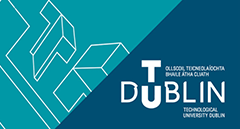Author ORCID Identifier
https://orcid.org/0000-0003-0940-8371
Abstract
This paper describes the use of gamification, in the form of an interactive puzzle-based escape room, as an innovative and cross-curricular approach to introducing the United Nation (UN) Sustainable Development Goals (SDGs) in higher education. Educational games encourage active and collaborative learning while both engaging and challenging learners. Here, we describe how sustainability literacy was incorporated into undergraduate chemistry programmes in the form of a puzzle-based game, known as an Escape Room. A printable escape room was developed for use in any face-to-face or virtual classroom. The escape room consists of a narrative, or storyline that leads players (students working in small teams) to progress through four levels of puzzles centred on introducing sustainability literacy and the SDGs. Each puzzle has different game mechanics, including a wordsearch, crossword, pictograms, maze, re-ordering activity and multiple-choice questions, requiring learners to adopt a range of problem-solving strategies. Educators reported the activity to be an effective and engaging pedagogical approach while students reported that it was fun and enjoyable and that it increased their awareness of the SDGs and sustainability. It engaged students in sustainability, whilst encouraging active citizenship. The escape room and supporting resources are freely available, along with a guide for educators explaining how to implement and run the session.
Creative Commons License

This work is licensed under a Creative Commons Attribution-NonCommercial-Share Alike 4.0 International License.
Recommended Citation
Rawe, Sarah L.; McGillicuddy, Eoin J.; McDermott, Sean D.; Fennelly, Mehael; and Behan, Patrice
(2023)
"Fostering Student Engagement with the United Nations Sustainable Development Goals using an Escape Room,"
Irish Journal of Academic Practice:
Vol. 11:
Iss.
2, Article 9.
doi:https://doi.org/10.21427/ddzh-fy48
Available at:
https://arrow.tudublin.ie/ijap/vol11/iss2/9
DOI
https://doi.org/10.21427/ddzh-fy48

